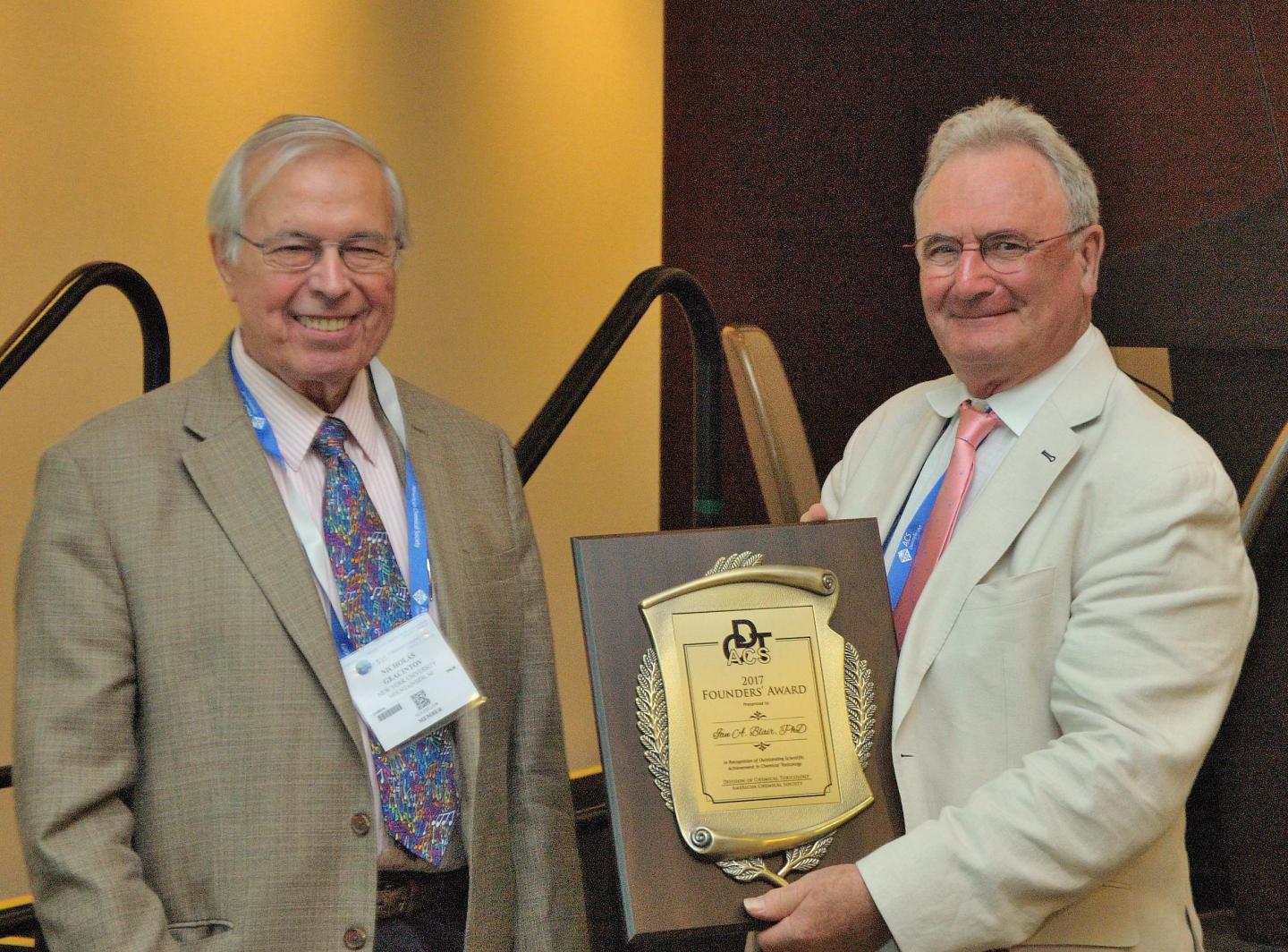
Credit: American Chemical Society
PHILADELPHIA — Ian A. Blair, PhD, an internationally recognized expert on applying mass spectrometry, which measures the characteristics of individual molecules, to biomedical problems and drug development, has won the 2017 Founders' Award from the Division of Chemical Toxicology of the American Chemical Society. Blair, who has held scientific appointments on five continents, is the A.N. Richards Professor of Pharmacology and director of the Center for Cancer Pharmacology at the Perelman School of Medicine at the University of Pennsylvania.
The award recognizes Blair's "outstanding contributions to the field of chemical toxicology," in particular, his work on biomarkers, which identify people at risk for certain diseases, increasing chances of successful treatment. Chemical toxicology is the study of the harmful effects of chemicals on living organisms.
Among his accomplishments, Blair pioneered the use of mass spectrometry to identify biomarkers for carcinogenesis, cardiovascular disease, and neurodegeneration. In addition, he invented a mass spectrometry technique for high-sensitivity, quantitative analyses of chiral molecules, called electron capture atmospheric pressure chemical ionization.
His current research involves the former Superfund site in Ambler, PA and developing serum biomarkers for asbestos exposure and mesothelioma. Blair is the director of the Penn Superfund Research and Training Program Center, which was established in 2014.
Research in his lab is also focused on the rare disease Friedreich's ataxia (FRDA), a genetic condition causing difficulty speaking and walking, which can result in death at an average age of 37 from heart failure. Blair lab showed for the first time a difference in acyl-CoA thioesters in FRDA platelets compared with controls, and also in another molecule, ApoA1. The lab was also the first to show a reduction in the ApoA1 protein in smokers, an important biomarker for coronary heart disease risk,
Blair received the award, which was established to memorialize the founders of the Division of Chemical Toxicology, during a symposium in his honor at the American Chemicals Society's national meeting in Washington, DC. The symposium will culminate with Blair delivering the annual Richard Loeppky Lecture. (His Reddit session prior to receiving the award received over 500 comments.)
Blair's international academic appointments include positions at Makerere University in Kampala, Uganda; Adelaide University in Australia; Royal Postgraduate Medical School in London; Vanderbilt University; and Kanazawa University in Japan. He is a fellow of the American Association for the Advancement of Science and the American Association of Pharmaceutical Scientists. His awards include the Eastern Analytical Award for Outstanding Achievements in Mass Spectrometry. Blair is senior editor of Future Science Open and is on the editorial boards of Molecular and Cellular Proteomics, Journal of Lipid Research, and Steroids. He has published over 380-refereed manuscripts, which have been cited over 17,000 times, including a seminal paper in Science in 2001 demonstrating that excessive vitamin C can induce the formation of genotoxins, which have destructive effects on a cell's genetic material.
Blair received his PhD in organic chemistry in 1971 from Imperial College of Science and Technology, London, under the mentorship of the 1969 Nobel Laureate, Sir Derek H.R. Barton.
###
Penn Medicine is one of the world's leading academic medical centers, dedicated to the related missions of medical education, biomedical research, and excellence in patient care. Penn Medicine consists of the Raymond and Ruth Perelman School of Medicine at the University of Pennsylvania (founded in 1765 as the nation's first medical school) and the University of Pennsylvania Health System, which together form a $6.7 billion enterprise.
The Perelman School of Medicine has been ranked among the top five medical schools in the United States for the past 20 years, according to U.S. News & World Report's survey of research-oriented medical schools. The School is consistently among the nation's top recipients of funding from the National Institutes of Health, with $392 million awarded in the 2016 fiscal year.
The University of Pennsylvania Health System's patient care facilities include: The Hospital of the University of Pennsylvania and Penn Presbyterian Medical Center — which are recognized as one of the nation's top "Honor Roll" hospitals by U.S. News & World Report — Chester County Hospital; Lancaster General Health; Penn Wissahickon Hospice; and Pennsylvania Hospital — the nation's first hospital, founded in 1751. Additional affiliated inpatient care facilities and services throughout the Philadelphia region include Good Shepherd Penn Partners, a partnership between Good Shepherd Rehabilitation Network and Penn Medicine.
Penn Medicine is committed to improving lives and health through a variety of community-based programs and activities. In fiscal year 2016, Penn Medicine provided $393 million to benefit our community.
Media Contact
Karen Kreeger
[email protected]
215-459-0544
@PennMedNews
http://www.uphs.upenn.edu/news/





